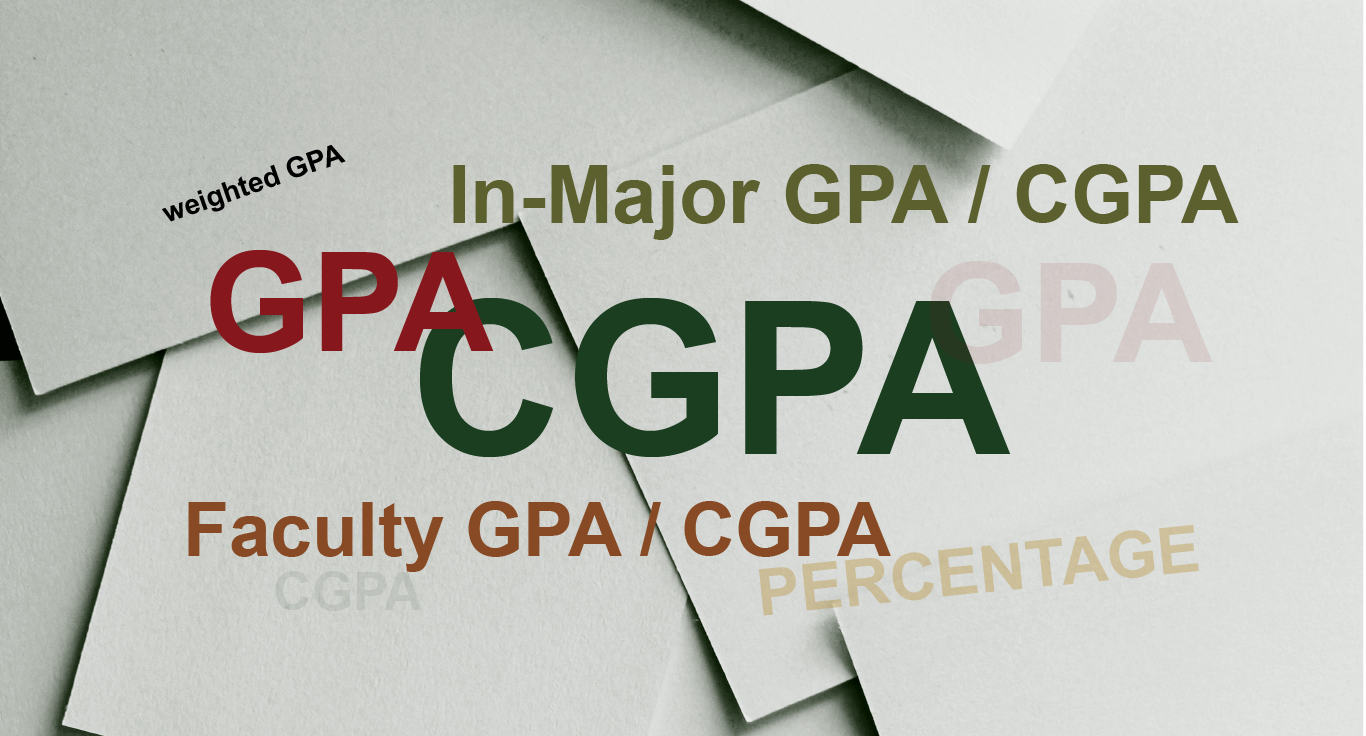Study Guide
What is the Highest GPA Ever, And How To Get It
The Grade Point Average (GPA) numerically represents a student’s academic performance.
It is a standardized measure educational institutions use to assess a student’s overall achievement during a specific period. GPAs are typically calculated from 0 to 4, with 4 representing the highest attainable grade.
However, a high GPA is important for academic and career success. In the academic realm, a high GPA is often a requirement for scholarships, honors programs, and graduate school admissions.
It reflects a student’s dedication, discipline, and academic ability. Furthermore, a strong GPA can open doors to career opportunities by impressing potential employers and demonstrating a strong work ethic and intellectual capabilities.
Therefore, this article aims to delve into the concept of the highest GPA ever achieved and provide insights into the strategies and techniques that can help students pursue their academic excellence in 2023.
By understanding the factors that contribute to a high GPA and implementing effective study practices, students can work towards achieving their maximum potential and set themselves up for success.
What Is A Weighted And Unweighted GPA?
A weighted GPA and an unweighted GPA are two different ways of calculating a student’s grade point average (GPA). Here’s an explanation of each:
Unweighted GPA
An unweighted GPA is calculated based on the grades a student receives in their courses without considering the difficulty or level of those courses.
In this system, each grade is assigned a certain value, typically on a 4.0 scale, and the GPA is calculated by averaging these values.
For example, if an A is assigned a value of 4.0, a B is assigned a value of 3.0 and a C is assigned a value of 2.0, the GPA is calculated by adding up the grade values and dividing by the total number of courses.
Weighted GPA
A weighted GPA considers the difficulty or rigor of the courses a student has taken. It assigns different weightings or values to grades based on the course level.
Typically, honors, Advanced Placement (AP), International Baccalaureate (IB), or other advanced courses are given additional weight.
For example, an A in an honors course might be assigned a value of 4.5 or 5.0 instead of the standard 4.0. This means that a student’s GPA can be higher than 4.0 if they have taken challenging courses and performed well in them.
Note: The specific grading scales and weightings used for calculating GPAs may vary between educational institutions. Therefore, it’s advisable to consult the policies of your particular school or college to understand how GPAs are calculated and interpreted in your academic context.
Compare the GRE and LSAT in this article- Gre Vs. Lsat | Top 15 Key Differences
What Is The Highest GPA You Can Earn On The Weighted Scale
The highest GPA you can earn on a weighted scale depends on the specific grading system used by your educational institution. The maximum weighted GPA is usually higher than the standard 4.0 scale used for unweighted GPAs.
Typically, the highest weighted GPA is 5.0. This is because some institutions assign an extra point to advanced or honors courses, such as AP or IB courses.
In such cases, an A in honors or advanced courses would be given a value of 5.0 and a B might be assigned 4.0, and so on. This allows students who take and excel in challenging courses to achieve a GPA above the standard of 4.0.
What Is The Highest GPA You Can Earn On The Unweighted Scale
The highest GPA you can earn on the unweighted scale is typically a 4.0.
The unweighted GPA system assigns each letter grade a numerical value, commonly on a 4.0 scale. The typical scale is as follows:
A: 4.0
B: 3.0
C: 2.0
D: 1.0
F: 0.0
These numerical values then calculate the GPA by averaging the grades earned across all courses.
The highest possible GPA in this system is achieved when a student consistently earns straight A’s (or the highest possible grade) in all of their courses, resulting in a GPA of 4.0.
Find out if you can use a calculator on the GRE- Can You Use A Calculator On The GRE | All Questions Answered
What Is The Highest GPA Ever Recorded
Determining the highest GPA ever recorded can be challenging as it can vary depending on the educational institution, grading scale, and specific context.
Furthermore, GPA calculations differ across countries and educational systems. However, there have been exceptional individuals who have achieved remarkably high GPAs.
One such notable example is Dylan Mazard, a United States student who reportedly achieved a perfect 11.84 GPA in 2022.
Dylan Mazard, an American student attending the Gaither High School in Tampa, Florida, made headlines for his outstanding academic performance.
He achieved this by consistently earning straight A’s and surpassing his older brother’s performance.
Additionally, he earned high-school credits from Florida Virtual School in 6th grade and took courses at Hillsborough Community College in 8th grade. He also took a heavy course load, sometimes with up to 14 classes per semester.
With a rigorous course load and exceptional grades in each subject, Dylan achieved a perfect cumulative GPA. His remarkable achievement demonstrates exceptional academic dedication, consistent high performance, and a strong work ethic.
Factors That Contribute To A High GPA
Below are factors that contribute to a high GPA:
Consistent academic performance
Consistency is a key factor in achieving a high GPA. It involves maintaining focus and effort throughout the academic year, ensuring steady progress and a strong academic foundation.
Consistent performance requires dedication, discipline, and effective time management skills.
Rigorous course selection
Choosing challenging courses that align with personal interests and goals can contribute to a high GPA.
Students demonstrate a commitment to academic rigor and intellectual growth by taking advanced courses or pursuing an honors curriculum.
High grades across all subjects
To achieve the highest GPA, it is crucial to excel in all academic subjects, not just a few. Consistently earning high grades across various disciplines showcases the versatility and a well-rounded academic profile.
Cumulative GPA calculation
The cumulative GPA considers all courses taken throughout an academic career, emphasizing the importance of long-term academic success.
Every grade contributes to the overall GPA, making it essential to perform well consistently over time.
Strategies To Achieve A High GPA In 2023
Here are strategies to follow to achieve a high GPA in 2023:
1. Setting realistic goals and expectations
Setting realistic goals is paramount to avoid unnecessary pressure and potential burnout. Students should establish achievable targets based on their abilities, taking into account their current academic standing, workload, and extracurricular commitments.
2. Time management and organization
Effective time management is crucial for maintaining a high GPA. Students should create a study schedule that allocates sufficient time for studying, completing assignments, and engaging in extracurricular activities.
Prioritizing tasks and developing organizational skills can help strike a balance between academic demands and personal life.
3. Actively participating in class
Attending lectures regularly and actively participating in class discussions allows students to better understand the material. Taking detailed notes during lectures helps in reviewing and reinforcing the learned concepts.
4. Utilizing effective study techniques
Active learning techniques, such as summarizing information in your own words or teaching others, enhance understanding and retention of knowledge.
Actively engaging with the material through various methods helps reinforce concepts and build a solid foundation of understanding.
5. Building strong relationships with teachers and professors
Establishing a positive rapport with instructors enables students to seek academic guidance and receive constructive feedback. Engage in discussions, ask for clarification, and seek their advice on improving performance.
6. Taking advantage of available resources and support systems
Physical and online libraries offer a wealth of resources, such as books, journals, and research databases. Utilize these resources to supplement classroom learning and deepen understanding of the subject matter.
Furthermore, seeking tutoring or academic assistance can provide targeted support if encountering difficulties in specific subjects. Tutors can offer personalized guidance and help clarify challenging concepts.
Also, preparing for exams requires strategic planning. Develop effective test-taking strategies, such as practicing past exams, time management during exams, and utilizing study aids like flashcards or mnemonic devices.
Learn about the GRE guidebook in this article- The Ultimate GRE Official Guide Book Review: Boost Your Score!
How To Address Challenges and Overcome Setbacks In Academics
To achieve the highest GPA ever, you need to overcome some challenges and setbacks in your academics. Here they are:
1. Recognizing signs of burnout and seeking help
It is important to be aware of signs of burnout, such as persistent exhaustion, decreased motivation, or declining academic performance.
If experiencing excessive stress, reach out to support services such as counseling centers or student support services.
These professionals can provide guidance and support in managing stress and maintaining mental well-being.
2. Practicing self-care and stress management techniques
Engaging in self-care activities is crucial for maintaining balance and managing stress. This includes getting enough sleep, eating well, exercising regularly, and engaging in hobbies or activities that bring joy and relaxation.
Also, stress management techniques like deep breathing, meditation, or mindfulness can help reduce stress levels.
3. Prioritizing tasks and finding a balance
It is important to prioritize tasks based on their importance and deadlines. Break down large tasks into smaller, manageable steps and allocate time for each.
By finding a balance between academic responsibilities, extracurricular activities, and personal life, students can avoid feeling overwhelmed and maintain focus.
4. Learning to delegate and seek support when necessary
Recognize that it is not always feasible to handle everything alone. Delegate tasks when possible and seek support from friends, family, or classmates.
This can help alleviate some of the workload and create opportunities for collaboration and shared learning experiences.
5. Seeking feedback and learning from mistakes
View setbacks as learning opportunities and actively seek feedback from instructors to understand areas that need improvement. Analyze mistakes and use them as a stepping stone for growth and improvement.
6. Adopting a growth mindset and embracing challenges
Adopting a growth mindset means seeing challenges as opportunities for growth rather than obstacles.
Embrace challenges, push beyond comfort zones, and persist in the face of difficulties. With a positive mindset, setbacks can be viewed as temporary obstacles on the path to success.
7. Utilizing setbacks as opportunities for growth
Use setbacks as a chance to reflect, reassess study strategies, and make necessary adjustments. Embrace a proactive approach to learning and continually strive for improvement.
What is a good GRE score out of 340? Find out in this article- What Is A Good GRE Score Out Of 340? | Best Tips
Benefits of Attaining a High GPA
There are many benefits to attaining a high GPA as a student. Below are some of those benefits:
Academic Opportunities
A high GPA opens doors to various academic opportunities. It increases your chances of being accepted into prestigious universities, graduate programs, or specialized fields of study. It may also qualify you for scholarships, grants, and other forms of financial aid.
Career Advancement
Many employers consider GPA as an indicator of your work ethic, dedication, and ability to meet goals.
A high GPA can give you a competitive edge in the job market, especially for entry-level positions or internships. It may also increase your chances of being promoted or considered for organizational leadership roles.
Graduate School Admissions
If you plan to pursue advanced degrees, such as a master’s or Ph.D., a high GPA is often a requirement for admission.
Admissions committees typically consider your undergraduate performance as an indicator of your potential for success in a graduate program.
Professional Networks
Excelling academically can lead to opportunities to connect with influential professors, mentors, and peers.
Building relationships with these individuals can provide valuable networking opportunities, recommendations, and access to internships or research opportunities.
Research and Scholarship Opportunities
A high GPA can make you eligible for research grants, fellowships, and academic awards. These opportunities can provide funding for research projects, travel to conferences, and recognition for your achievements.
Personal Development
Achieving a high GPA requires discipline, time management, and critical thinking skills. The pursuit of academic excellence can enhance your intellectual capabilities and promote personal growth. It instills a strong work ethic, boosts your confidence, and develops a lifelong love for learning.
Frequently Asked Questions
Yes, achieving a GPA higher than 4.0 in certain educational systems that use weighted grading scales is possible.
Several factors can influence your GPA, such as grades, course loads, credit hours, grading scales, retaking courses, and withdrawals and incompletes.
Generally, extracurricular activities do not directly affect your GPA. While extracurricular activities may not directly contribute to your GPA, they play a significant role in your personal growth, development, and building a well-rounded academic profile.
The frequency of GPA calculation can vary depending on the educational institution. In most cases, GPA is calculated at the end of each academic term or semester, such as the end of a quarter, semester, or school year.
Achieving the highest possible GPA requires dedication and hard work.
In some cases, achieving a GPA higher than 4.0 is possible. Certain institutions or educational systems may use a weighted GPA scale that assigns additional points for advanced or honors classes.
For example, an A in an honors class might be awarded 4.5 points instead of 4.0, which can result in a GPA above 4.0.
However, it is important to remember that GPA scales and grading systems can vary, so it is essential to understand the specific system used by your institution.
Conclusion
The highest GPA ever achieved represents exceptional academic performance and serves as a benchmark for academic excellence.
While specific record-holders may vary, it demonstrates the potential for students to strive for their highest potential.
Every student has the potential to achieve great things academically. Students can work towards reaching their highest potential by setting their own goals, developing effective study habits, and seeking support when needed.
Remember that academic success is not solely defined by a number but by personal growth, intellectual curiosity, and a passion for learning.
References
- soflotutors.com– What’s The Highest GPA Possible And How To Get It
- mytopschools.com– What is a Grade Point Average (GPA)
- coursera.org– What Is a Good College GPA and How Can You Raise Yours?
Recommendations
- Is a 3.1 GPA Good? Colleges You Can Get Into with a 3.1 GPA
- Boost Your GRE Psychology Prep With A Practice Test
- GRE Writing Example: Learn from the Best
- How to Register for GRE Exam | Registering GRE Online
- Is the GRE Hard? Expert Insights and Tips for Success
- Khan Academy GRE: Master the Test with Expert Guidance
- Is The GRE Harder Than The SAT? 12 Things to Keep in Mind






